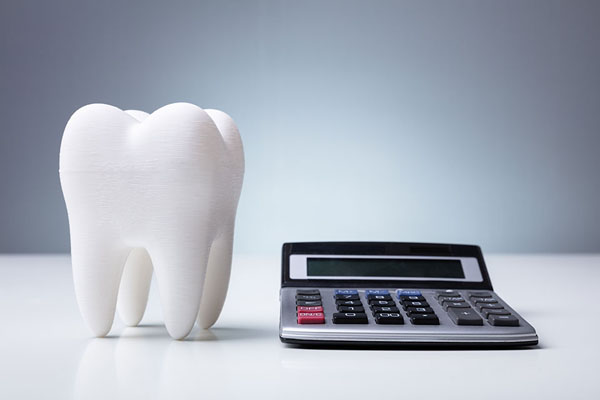Dental Bridge Cost
Understanding How Much Dental Bridges Cost
When it comes to restoring missing teeth, dental bridges are a popular and effective option. They provide a natural-looking solution that helps restore your smile and oral functionality. However, one of the considerations that may arise is the cost associated with dental bridges.
Our Luck dentist wants to ensure that everyone can receive the dental care they need. Read more about the costs associated with a dental bridge below. If you’re looking for more information, feel free to contact our dental office today by calling (715) 472-2211.
How Much Do Dental Bridges Cost?
On average, the dental bridge cost can range from $500 to $1,200 per tooth. The cost of dental bridges will vary depending on several factors, including the complexity of the case, the number of missing teeth, the materials used, and the location of the dental practice. If you require a three-unit bridge to replace a single missing tooth, the total cost could be between $1,500 and $3,600.
Factors That Influence Dental Bridge Cost
- Type of Bridge: Implant-supported bridges tend to cost more than traditional dental bridges.
- Materials Used: The material chosen for the artificial teeth can significantly affect the price, with gold and all-porcelain generally being more expensive than other options.
- Number of Teeth Being Replaced: The more teeth you need to replace, the more the bridge will cost.
- The Complexity of the Procedure: If other procedures, such as gum surgery or root canal therapy, are needed before placing a bridge, this will increase the overall cost. Some may also want to brighten their smile before replacing missing teeth, which would include teeth whitening costs.
- Geographic Location: Dental bridge costs can vary widely by region, with urban areas often having higher fees than rural ones.
- Dentist’s Experience and Reputation: Highly experienced or specialized dentists might charge more for their dental bridge services.
- Dental Insurance: The amount your dental insurance covers will affect your out-of-pocket costs. Not all dental insurance plans cover bridges, or they might only cover a portion of the cost.
Cost of Dental Bridges vs. Other Restorative Options
Compared to other restorative options for replacing missing teeth, dental bridges fall within a moderate price range. Dentures are generally less expensive, with costs ranging from $500 to $2,500 per arch. However, dentures may not provide the same level of stability, comfort, and natural appearance as dental bridges.
Dental implants, on the other hand, are a more expensive alternative, with costs ranging from $1,500 to $6,000 per implant, depending on various factors. While dental implants offer long-term benefits and a high success rate, they often require more extensive surgical procedures and a longer treatment timeline.
Dental Insurance
Dental insurance plans may provide coverage for a portion of the cost of dental bridges, but the extent of coverage can vary. Some plans may cover a percentage of the cost, while others may have a fixed maximum annual benefit. Here’s some information to keep in mind when it comes to insurance for a dental bridge procedure:
- Coverage: Dental insurance policies vary widely in terms of what they cover. Some dental insurance plans may cover a significant portion of the cost of dental bridges, while others might cover only a fraction or none at all.
- Types of Dental Bridges: There are various types of dental bridges (traditional fixed bridge, cantilever dental bridge, Maryland dental bridge, and implant-supported bridge). The type and materials used can affect the cost and the amount of coverage you receive from your insurance.
- Percentage of Coverage: Dental insurance plans often cover dental procedures based on a tiered system:
- Preventive care (cleanings, exams): Often covered at 100%
- Basic procedures (fillings, extractions): Often covered at 70-80%
- Major procedures (dental crowns, bridges, dentures): Often covered at 50%
- Waiting Periods: Some dental insurance plans have waiting periods for major dental procedures. This means you may need to have the insurance policy for a certain period before you can receive coverage for procedures like dental bridges.
- Annual Maximums: Dental insurance often has an annual maximum benefit. Once your covered treatments reach this amount, the insurance will not pay for additional treatments until the next policy year.
- Pre-treatment Estimates: Before getting a dental bridge, it’s a good idea to request a pre-treatment estimate from your dentist. They can submit a claim to the insurance company detailing the planned procedure, allowing the insurance company to provide an estimate of what they will cover and what your out-of-pocket expense might be.
- Network: If you have a Preferred Provider Organization (PPO) plan or a Health Maintenance Organization (HMO) plan, the amount of coverage you receive might depend on whether your dentist is in-network. Seeing an in-network dentist often results in higher coverage and lower out-of-pocket expenses.
- Discount Plans: While not insurance, some individuals opt for dental discount plans. These plans offer discounts on various dental procedures, including bridges, for an annual fee. If you don’t have dental insurance, this might be an option to consider.
Financing Dental Bridges
Financing a dental bridge can make the process more affordable, especially for those without dental insurance or with insurance that doesn’t cover the full cost of a new bridge.
Dental Office Payment Plans
Many dental offices offer in-house financing or payment plans. These plans often allow you to pay for your dental work in installments over a specified period. Some dental offices might offer interest-free plans if the amount is paid within a certain timeframe.
Medical Credit Cards
Cards like CareCredit are designed specifically for medical and dental expenses. They may offer promotional periods with 0% interest. Be cautious: If you don’t pay off the balance by the end of the promotional period, you might be retroactively charged a high-interest rate from the original purchase date.
Personal Loans
Personal loans can be taken from a bank, credit union, or online lender. They can be used for any purpose, including dental work. Interest rates and terms vary based on your creditworthiness.
Healthcare Installment Loans
Some lenders specialize in loans specifically for medical or dental procedures. These loans can offer fixed interest rates and set repayment terms, making it easy to budget.
Flexible Spending Accounts (FSAs) & Health Savings Accounts (HSAs)
If you have an FSA or HSA through your employer, you can use the pre-tax funds in these accounts to pay for dental procedures. Ensure you know the annual contribution limits and any rules about using the funds.
Dental Schools
Consider having the procedure done at a dental school. While the work is performed by students, they are supervised by experienced dentists. Dental schools often offer procedures at a reduced cost.
Dental Discount Plans
While not insurance, dental discount plans can provide significant savings on dental procedures, including bridges. For an annual or monthly fee, you can access reduced rates at participating dentists.
Frequently Asked Questions
Are there any additional costs associated with dental bridges?
In addition to the cost of the dental bridge itself, there may be additional expenses involved, such as dental consultations, X-rays, pre-bridge treatments (like tooth extractions, gum disease treatment, or root canals), and follow-up appointments. It’s essential to discuss the full treatment plan with your dentist to understand all associated costs.
Are there any discount programs or community dental clinics that offer reduced-cost dental bridges?
Yes, some dental schools, community health centers, and charitable organizations offer reduced-cost or sliding-scale fee programs for dental services, including dental bridges. These programs aim to provide affordable dental care to individuals with limited financial means. Research local dental clinics or inquire with your dentist about any available discount programs in your area.
What is a cheaper alternative to a dental bridge?
Dentures are a cheaper alternative to a dental bridge. However, dentures require extra maintenance and may not look as natural as a dental bridge. Contact your dentist to discuss your tooth replacement options.
Is a dental bridge better than a dental implant?
Dental insurance often covers dental bridges, leading to a lower initial expense. However, if finances aren’t a concern and your overall health is good, dental implants could be a preferable choice due to their durability and the fact they don’t harm adjacent teeth.
Making an Informed Decision for Your Smile and Budget
Dental bridges are an effective and aesthetically pleasing option for replacing missing teeth. While the cost of dental bridges can vary, it’s important to consider the long-term benefits they provide. Before making a decision, contact our dentist in Luck at (715) 472-2211 to assess your specific needs and discuss the best treatment option for you.




